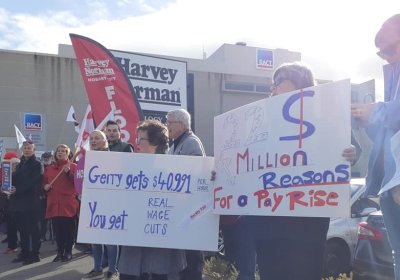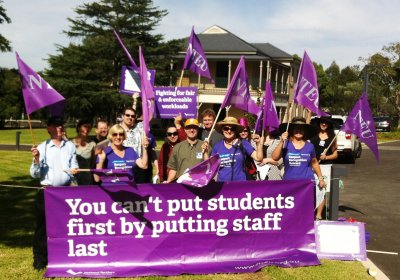While essential workers kept society running through the pandemic, governments and bosses worked assiduously to undermine their pay and conditions. Federico Fuentes reports.
casual work
Government action and worker solidarity are key to overcoming the scourge of insecure work and ensuring pay rises keep pace with inflation and productivity improvements, argues Graham Matthews.
Suzanne James spoke to trade unionist and Socialist Alliance candidate for the Victorian Senate Angela Carr about Australia’s economic and social equity crisis.
An ACTU report, released just before International Women's Day, is a timely reminder of just how little respect the Coalition government has for the majority of women. Isaac Nellist reports.
In a blow for workers’ rights, the High Court has overturned a ruling that some casual workers should be entitled to annual leave and sick pay, writes Isaac Nellist.
After three weeks on strike, General Mills workers have endorsed a deal that includes a wage rise and in which all their conditions are maintained, reports Jim McIlroy.
Making employees feel insecure and in permanent competition for continuing work is one well-worn pathway for ensuring workplaces are compliant, wages stay low and conditions are minimal, writes Pip Hinman.







